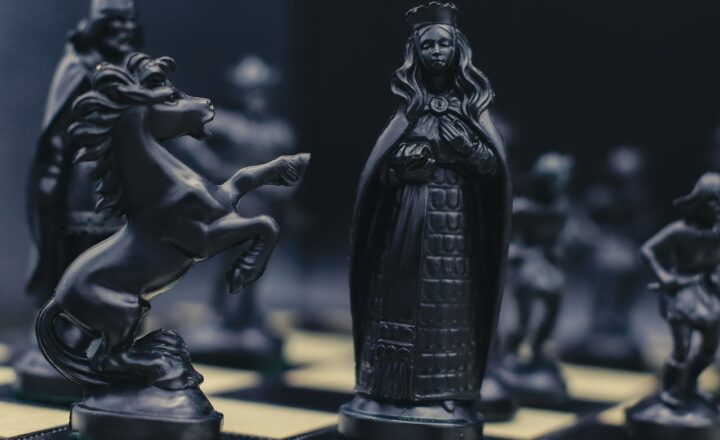Theories About the Illuminati: Secret Society or Pure Fantasy?
November 15, 2024

The Illuminati have long captured the imagination of conspiracy theorists, secret society enthusiasts, and even the general public. From their historical roots in the Bavarian Illuminati of the 18th century to their purported modern-day descendants, various theories have arisen regarding their influence, motives, and even existence. In this article, we will delve into the mysterious world of the Illuminati, exploring the origins of this elusive group and examining the most popular claims surrounding its legacy.
1. The Historical Roots of the Illuminati
The term “Illuminati” originates from the Bavarian Illuminati, a secret society founded in 1776 by Adam Weishaupt, a professor of canon law at the University of Ingolstadt. Weishaupt envisioned a group that would promote Enlightenment ideals, oppose religious and political oppression, and encourage the use of reason over tradition.
Though the group began with noble intentions, it quickly attracted criticism. It was seen as a threat to the established order, leading to its suppression by the Bavarian government in the late 1780s.
Despite its short-lived existence, the idea of the Illuminati persisted, morphing into a broader concept of a secret society that allegedly influences world politics and events from the shadows.
2. The Illuminati in Popular Culture
The notion of the Illuminati has permeated popular culture, becoming a staple in movies, music, and literature. Names such as Kanye West, Beyoncé, and Jay-Z have been linked to the Illuminati, often seen as part of a larger narrative suggesting that celebrities are initiated into the society.
This narrative extends to claims that symbols associated with the Illuminati are hidden in music videos, album artwork, and advertisements, leading to the belief that there’s an overarching agenda among the elite to manipulate public perception.
3. Major Theories Surrounding the Illuminati
Theories about the Illuminati tend to fall into several key categories, each addressing varying aspects of alleged influence and power.
### 3.1 World Domination
One of the most prevalent theories is that the Illuminati seek to control world events to establish a New World Order (NWO). The NWO concept suggests that a powerful, centralized government will emerge under the control of a select few individuals or organizations. This theory often cites events such as the September 11 attacks and the COVID-19 pandemic as examples of orchestrated actions to bring about societal changes that aid in their plan.
### 3.2 Political Manipulation
Another major theory indicates that the Illuminati infiltrate political systems. Proponents argue that members of secret societies occupy key positions in governments and major institutions, thus manipulating policies, legislation, and even elections. These theories often include references to influential families and organizations like the Rothschilds, the Rockefellers, and the Council on Foreign Relations.
### 3.3 Control Through Technology
In the modern era, conspiracy theorists have also suggested that the Illuminati utilize technology for surveillance and social control. From facial recognition systems to social media algorithms, these theories claim that the Illuminati can manipulate people’s thoughts and behaviors, allowing them to maintain control over the masses.
### 3.4 Rituals and Symbols
Many theorists argue that the Illuminati use specific rituals and symbols to oversee their activities and maintain allegiance among members. The pyramid with an eye, often seen on the U.S. dollar bill, is one such symbol believed to represent the Illuminati’s hidden influence. These symbols’ appearance in pop culture further fuels claims that the powers that be are using celebrities as conduits for their agenda.
4. Debunking Common Misconceptions
While the theories surrounding the Illuminati are compelling, they often lack credible evidence and rely heavily on anecdotal reasoning. Let’s break down a few common misconceptions:
### 4.1 The Illuminati Controls Everything
Many claim that the Illuminati orchestrates every major event. However, attributing complex global happenings to a single, elusive group simplifies issues that often have multiple causes, such as political, social, economic, and environmental factors.
### 4.2 All Famous People are Illuminati Members
The idea that all well-known figures are members of the Illuminati is a sweeping generalization. While many celebrities may embrace secretive practices or maintain their private lives, it does not imply affiliation with any society.
### 4.3 The Illuminati is a Unified Organization
Many believe the Illuminati operates as a centralized authority. However, the lack of solid evidence regarding member identities and intentions makes it difficult to establish the cohesiveness of such an organization.
5. Why Do We Believe in the Illuminati?
Understanding why the concept of the Illuminati resonates with people can provide insight into broader societal issues. Here are a few reasons:
### 5.1 Fear of the Unknown
Secret societies operate in shadow, leaving much to speculation. The unknown stirs fear, and conspiracies often fill the gaps in our understanding.
### 5.2 Distrust in Institutions
Widespread distrust in government, media, and financial institutions leads individuals to seek alternative explanations, sometimes culminating in belief in conspiracy theories like that of the Illuminati.
### 5.3 Cultural Narratives
The portrayal of secret societies in literature and film fosters intrigue, perpetuating the idea that such groups are powerful and pervasive, even when evidence is scant.
6. Conclusion: Secret Society or Pure Fantasy?
While the Illuminati has captivated audiences for centuries, much of what circulates today is entrenched in myth and speculation. The group as it was originally conceived is defunct, yet its legend lives on through a web of contemporary theories.
The fascination surrounding the Illuminati often speaks more to human psychology than to any actual existence of a powerful, secretive elite. Whether it’s primitive tribal instincts of fear, the glorification of power in popular culture, or just plain curiosity, the Illuminati will continue to intrigue.
In navigating these theories and beliefs, it’s essential to apply critical thinking and skepticism. In the end, the truth may not be as fantastical as we’d prefer, but the exploration of mystery often yields its own rewards, engaging our curiosity and prompting deeper inquiry into the socio-political structures that shape our world today.







